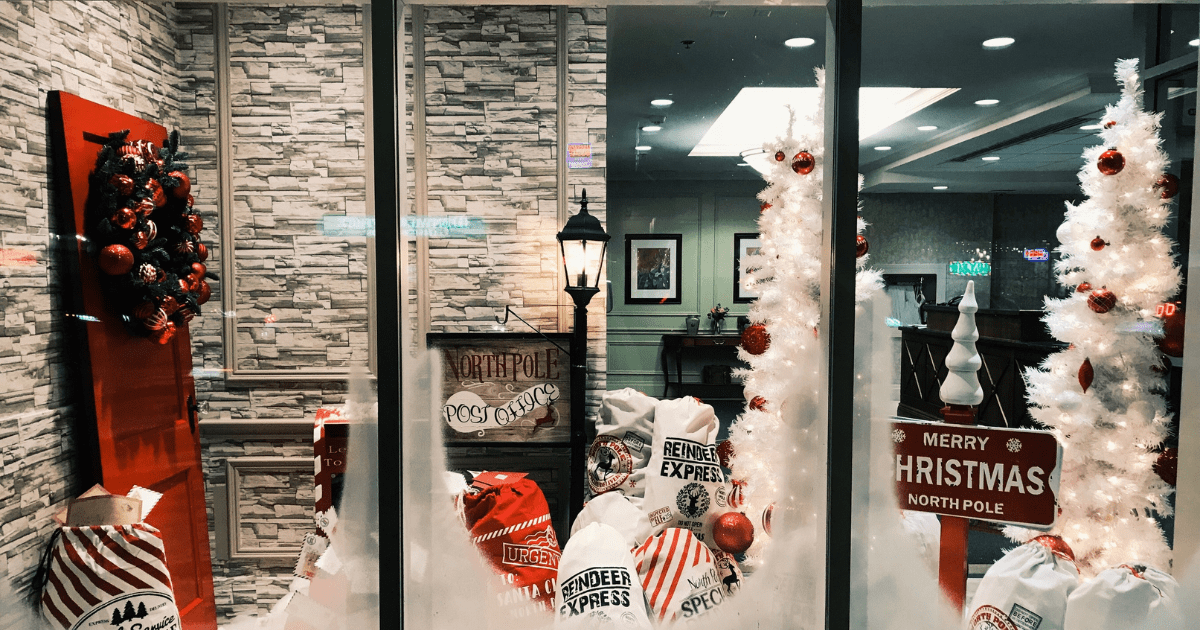By Lauren Gideon
There is something special about childhood. Overlay the beauty and simplicity of childhood with the sacred spectacular atmosphere of the holidays, and that intersection seems nothing short of magical. This wedge, where those two events overlap, is so powerful that grown adults constantly search for ways to replicate that experience and those sentiments. Our song lyrics and storylines are strong indicators of this reality. What changes as we age? Why can’t we always (only) experience that perceived magical atmosphere? Why does everything feel so complicated?
A few years ago, I was in line at the grocery store, listening to the conversation between the cashier and a customer unfolding in front of me. As the customer prepares to depart, the cashier extends the farewell of “Happy Holidays.” In disgust, the customer replies with a harsh and sharp, “Merry Christmas!”
Wait. What just happened?
My thoughts started taking inventory. “Did that customer just use a Christmas salutation as retaliation?” In true sports commentary fashion, let’s look at the replay. In this scenario, the cashier was perceived to have been using the “happy holidays” greeting as a way to deny the real “reason for the season.” But was she? Is there anything wrong with “happy holidays”? Was the cashier maliciously trying to cancel Christ? Was the offended customer claiming to be a Christian? The irony of the retort was amusing, to say the least. There was nothing merry about her tone or her intent. And I’m not very confident that Person, whose birth she thought she was defending, would have been pleased by her style.
However, can we sympathize with both parties? The grown-up world is complicated. We struggle even to greet a stranger this time of year. You see, in addition to the holidays, we have learned there are conflicting worldviews. We have learned that the holders of these worldviews are frequently hostile to holders of other worldviews. As Christians, we know that in this world we will have trouble, but that Christ has overcome the world. (John 16:33)
How many times have we met Christians who not only go looking for trouble but also for a chance to be this type of “overcomer.” This customer was clearly frustrated; hopefully, her misstep is a cautionary tale to other Christians. Still, we can understand that navigating a bold allegiance to Christ in a world full of people we are called to love is…complicated.
A Free Society Will Bring Confusion, and That’s a Good Thing
This year, I was told another story about a workplace DEI book club. The week’s topic was how not to talk about Christmas in the workplace. Contrast this with those who insist that we must speak about Christmas all the more because it’s our “first-amendment right.”
Highlighted here is the deep complexity of the free market, the civil sphere, limited congress, public-policy-governing employers, confusion over the origin of rights, the Constitution, natural law, and the Creator.
We confuse spheres of governance vs. mechanisms of enforcement and fail to consider the consequences of misunderstanding and misusing these. Additional elements include mechanisms of the free market, obligations of citizens, obligations of consumers, and labor providers in a free market. Each one of these components is an inescapably complicated layer that adds to the weight of responsibility. This makes our simple childhood memories much more precious and explains why grown adults prefer discovering a path back to childhood than navigating a way forward.
While it seems that Christians’ primary conflict is with those outside the faith, this is evidently false. Is there an answer to all this madness?
How to Navigate With Romans 14
Romans 14:5-9 gives us a 3-part navigation process.
“5 One person esteems one day as better than another, while another esteems all days alike. Each one should be fully convinced in his own mind. 6 The one who observes the day, observes it in honor of the Lord. The one who eats, eats in honor of the Lord, since he gives thanks to God, while the one who abstains, abstains in honor of the Lord and gives thanks to God. 7 For none of us lives to himself, and none of us dies to himself. 8 For if we live, we live to the Lord, and if we die, we die to the Lord. So then, whether we live or whether we die, we are the Lord’s. 9 For to this end Christ died and lived again, that he might be Lord both of the dead and of the living.”
Part One: Be convinced.
Convinced has nothing to do with opinion. Webster’s 1828 dictionary defines convinced as persuaded in mind; satisfied with evidence; convicted. Being blessed with freedom, both civilly and economically, comes with responsibility. Embrace it, steward it, protect it, and afford it to others. Gather and wrestle through the evidence, and put the evidence on trial until you reach a satisfactory verdict. And then, when new evidence presents itself, rinse and repeat.
Part Two: Be gracious with others.
They bear the same responsibility, and they also will give an account. We know the stakes are high, and the task is heavy; therefore, we should not complicate what is already sufficiently complicated. If anything, we should model the diligence, sobriety, and reverence we have for this responsibility and the ability to stay out of our neighbor’s figurative courtroom.
Part Three: Chill out, be thankful, and live and die for an audience of One.
The whole passage can be summed up with a single parallel text, Micah 6:8.
He has told you, O man, what is good;
and what does the Lord require of you
but to do justice, and to love kindness,
and to walk humbly with your God?
So, to my friends near and far who may read this: happy holiday, and Merry Christmas.

Lauren Gideon is the Director of Public Relations for Classical Conversations. She co-leads and teaches through an organization committed to raising citizenship IQ on U.S. founding documents. She and her husband homeschool their seven children on their small acreage, where they are enjoying their new adventures in homesteading.
